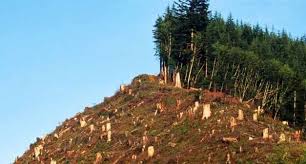Our Blog
Home / Blog
Food Security And Ecology

By Aritra Kshettry (Centre for Wildlife Studies-Bangalore, Asian Conservation Foundation)
Biodiversity conservation can be advocated from two starkly different points of view, the first being the inherent value based approach and secondly the ecosystem service perspective. While the former approach solicits biodiversity conservation for the right of species to exist, the latter is a more convincing argument where the services provided by biodiversity to mankind is evaluated and pitted against development projects.
To cite an example of ecosystem services provided by the natural world, it is estimated that the net value of ecosystem services is around 33 trillion USD.
- Let us see how the ecosystem benefits and how important is ecology in our lives. When discussing biodiversity conservation and ecological balance one almost always links it to climate change which is an obvious long term effect of the immense human footprint on this planet. Another very pertinent impact of ecology is in the question of human food security. Over the last century, human population has doubled and is projected to reach the 9 billion mark.
- Global demand for food is projected to increase for at least the next forty years which means increasing pressure on natural resources including over exploitation of fisheries.
- Nevertheless, we are dependent on the ecosystem for food production and it is very interesting to know how ecology drives food production and how ensuring the protection of ecosystem will ensure global food security. The only source of energy for humans; be it via animal or plants is from the sun, plants assimilate this energy through the process of photosynthesis and this is where ecology comes in. The living and non-living components of our eco-system are intimately intertwined and this balance ensures food production. Tiny microorganisms in soil help plants get their vital nutrients and these nutrients are in turn assimilated in humans when we consume plants.
- Plants cannot live in isolation and they require animal agents for pollination and dispersal, these agents can vary from tiny moths to elephants.
- Even for agriculture, we are immensely indebted to our eco-system where soil fertility is driven by carbon sequestration mediated via biotic and abiotic components.
- Intensifying agriculture and clearing forests for agriculture and cash crops may seem like the right way forward but research shows that such an approach can have drastic long term effects not only on food production but also climate change.
- Global food security, climate change and freshwater scarcity will continue to be on the agendas in global summits where policy makers decide the fate of the planet. But, it is imperative that the critical balance of our eco-system is not tipped over permanently and only the sound understanding of ecology will enable decision makers to make the right decisions to ensure food security using sustainable means.
References:
- Wilson, E. O. (2002). The future of life. Random House LLC.
- World Bank,World Development Report 2008: Agriculture for Development (World Bank, Washington, DC, 2008)
- Godfray, H. Charles J., et al. “Food security: the challenge of feeding 9 billion people.” science 327.5967 (2010): 812-818.
- Vitousek, Peter M., et al. “Biological nitrogen fixation: rates, patterns and ecological controls in terrestrial ecosystems.” Philosophical Transactions of the Royal Society B: Biological Sciences 368.1621 (2013): 20130119.
- Althoff, David M., et al. “Florivore impacts on plant reproductive success and pollinator mortality in an obligate pollination mutualism.” Oecologia 173.4 (2013): 1345-1354.
- Vidal, Mariana M., Mathias M. Pires, and Paulo R. Guimaraes Jr. “Large vertebrates as the missing components of seed-dispersal networks.” Biological Conservation 163 (2013): 42-48.
- Lal, Rattan. “Soil carbon sequestration impacts on global climate change and food security.” science 304.5677 (2004): 1623-1627.
- Sinha, S. K., and M. S. Swaminathan. “Deforestation, climate change and sustainable nutrition security: A case study of India.” Climatic Change 19.1-2 (1991): 201-209.





